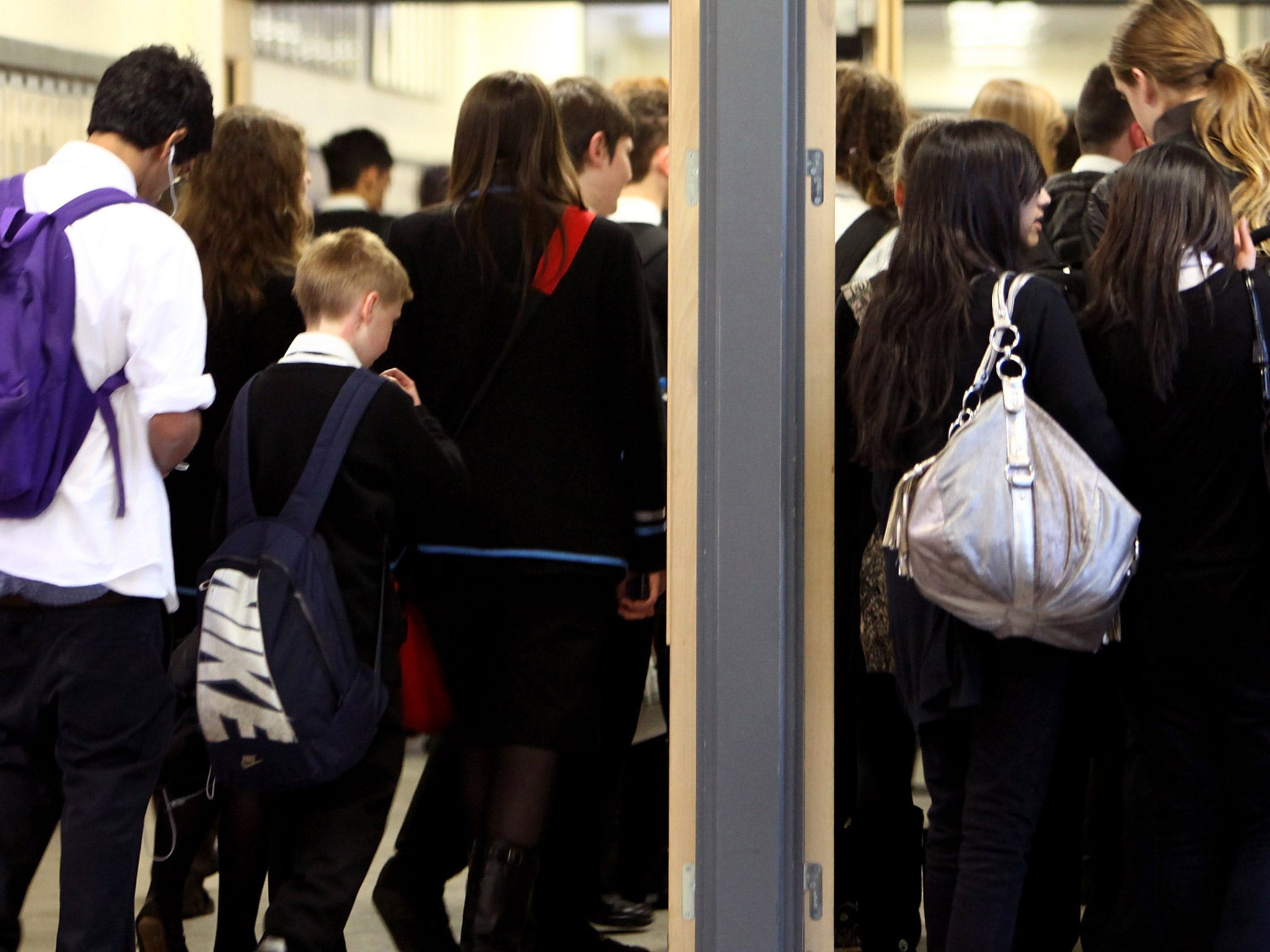Disadvantaged children 'do particularly badly in large schools'
New research exposing performance gap come as local authorities plan 'super-sized' titan secondary schools

Your support helps us to tell the story
From reproductive rights to climate change to Big Tech, The Independent is on the ground when the story is developing. Whether it's investigating the financials of Elon Musk's pro-Trump PAC or producing our latest documentary, 'The A Word', which shines a light on the American women fighting for reproductive rights, we know how important it is to parse out the facts from the messaging.
At such a critical moment in US history, we need reporters on the ground. Your donation allows us to keep sending journalists to speak to both sides of the story.
The Independent is trusted by Americans across the entire political spectrum. And unlike many other quality news outlets, we choose not to lock Americans out of our reporting and analysis with paywalls. We believe quality journalism should be available to everyone, paid for by those who can afford it.
Your support makes all the difference.Disadvantaged children do particularly badly in large schools, according to research that calls into question plans for new “titan” schools.
The gap in performance between poorer pupils and their better off peers – in terms of those obtaining five A* to C grades including maths and English – is 26.1 percentage points at the country’s biggest 300 schools. This compares to just 20.3 percentage points at the 300 smallest.
The findings come as local authorities are planning new “super-sized” titan secondary schools in a bid to cope with an increase in the number of pupils over the next few years. At least 17 local councils are planning new schools with between 12 and 16 classes in each year group as councils attempt to provide more than 80,000 secondary school places over the next four years.
Local authorities maintain they have little alternative as they are forbidden from opening new schools themselves. All new schools have to free schools. However, supporters of free schools say many of the extra places will be in schools that have either failed their Ofsted report or where GCSE results have gone down.
Analysis by New Schools Network, the charity which supports free schools, shows 42,000 of the 79,000 places created in existing schools have occurred in schools where GCSE results have declined in recent years.
“Many existing schools are expecting to address a huge growth in demand for places,” said Nick Timothy, director of the New Schools Network.
He said the research showed that the expansion “can be bad for the poorest and most vulnerable students. New and smaller free schools are “best placed” to meet the challenges of rising demand for places and improved education standards, he argued.
However, local authority leaders say they could address the situation and open new schools rather than being forced to rely on expanding existing provision if there are no free school applications in their area.
The research coincides with another report published by the Sutton Trust education charity, which campaigns for equal access to education, which shows that white working class boys living in the poorest communities suffer a “double disadvantage”.
Its research shows only 29 per cent in this situation will go on to further academic study asfter taking GCSEs - while 46 per cent of white working class boys living in better off areas carry on with their education.
In addition, it shows that boys are significantly less likely to carry on with their academic studies than girls. Two-thirds of girls go on to take AS or A-levels compared with 55 per cent of boys.
“It is shocking that so few white working class boys go on to take AS or A levels,” said Sir Peter Lampl, chairman of the Sutton Trust. “We must redouble our efforts to address these attainment gaps and ensure that every pupil, regardless of family income, gender or ethnicity has the chance to succeed.
Join our commenting forum
Join thought-provoking conversations, follow other Independent readers and see their replies
Comments